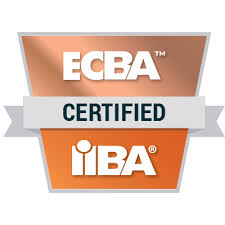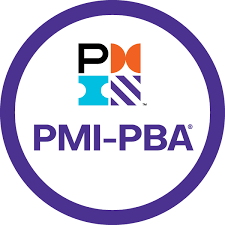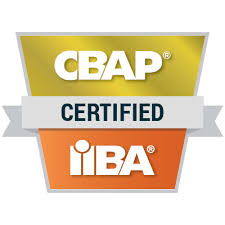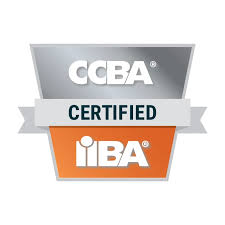For those looking to start a career in business analysis, the Entry Certificate in Business Analysis (ECBA) course is a basic curriculum. In order to guarantee that students understand the fundamental ideas and procedures that are central to the work of a business analyst, it covers the business analysis basics as described in the Business Analysis Body of Knowledge® (BABOK® Guide).
Course Objectives
The topics covered in this course include: requirements life cycle management; requirements analysis and design definition; business analysis knowledge and underlying capabilities; business analysis planning and monitoring; elicitation and collaboration;
Course Outline
Business Analysis Knowledge
- Business analysis and the BA professional
- Business analysis key concepts
- Underlying competencies
- Techniques
Business Analysis Planning and Monitoring
- Plan Business Analysis Approach
- Plan Stakeholder Engagement
- Plan Business Analysis Governance
- Plan Business Analysis Information Management
- Identify Business Analysis Performance Improvements
Elicitation and Collaboration
- Prepare for Elicitation
- Conduct Elicitation
- Confirm Elicitation Results
- Communicate Business Analysis Information
- Manage Stakeholder Collaboration
Requirements Life Cycle Management
- Trace Requirements
- Maintain Requirements
- Prioritize Requirements
- Assess Requirements Changes
- Approve Requirements
Requirements Analysis and Design Definition
- Specify and Model Requirements
- Verify Requirements
- Validate Requirements
- Define Requirements Architecture
- Define Design Options
- Analyze Potential Value and Recommend Solution
ECBA Competencies
According to the BABOK® Guide, ECBA covers the fundamentals of business analysis and demonstrates your mastery of the essential skills and information needed to succeed in the highly sought-after profession of business analysis. Make a statement by showcasing your expertise and earning a certification from the IIBA, the world’s foremost authority on business analysis.
ECBA Eligibility
- Make sure to create an IIBA account (if you’re already a member, log in here).
- Accept the rules of behavior.
- You accept the terms and conditions.
- Candidates must: Completing a minimum of 21 Professional Development (PD) hours during the past four years is a requirement for earning the ECBA certification. Accept the terms and conditions and the code of conduct. ace the test.
This skill addresses every goal for the IIBA ECBA certification and is based on the IIBA BABOK Guide, version 3. When you use this talent to meet the minimum requirement of 21 hours of professional development, you will also be eligible for the ECBA certification.
Audience
Project managers, data analysts, enterprise analysts, process analysts, IT professionals, product managers, entrepreneurs, aspirant business analysts, junior business architects, junior business systems analysts, recent graduates
Overview
Participants gain knowledge of a variety of methods and ideas over the courses, including requirements management, elicitation, analysis, and solution assessment. For professionals, earning an ECBA certification may be a big step since it shows their dedication to the area and gives them the abilities they need to help with business analysis initiatives. The expense of earning the ECBA certification is viewed as an investment in a promising future, and the certification is well-known in the field and may lead to new employment openings and professional advancement.
In many companies, business analysts play a crucial role in supporting business projects and fostering corporate expansion. Entry-level business analysts may confirm their business analysis abilities and make a lasting impression in their employment with the aid of the IIBA-designed ECBA training program.
The ECBA certifies that you possess the fundamental skills and knowledge needed to work in the in-demand profession of business analysis. It also covers the foundational information needed to approach business analysis in accordance with the BABOK Guide.
Gaining insights from data sets and possessing essential data analysis abilities are prerequisites for becoming a business analyst.
It’s no secret that business practices are changing; this trend has been going strong for decades and doesn’t appear to be slowing down. On the contrary, more firms than ever before are learning how to adapt today.
Business analysts, a group of workers with duties ranging from project management to software development to systems and process analysis, are at the core of this massive change.
The area of business analytics is accessible to people without technological expertise as well. A successful career as a business analyst may be attained by anybody with the correct attitude, commitment, and openness to learning.




